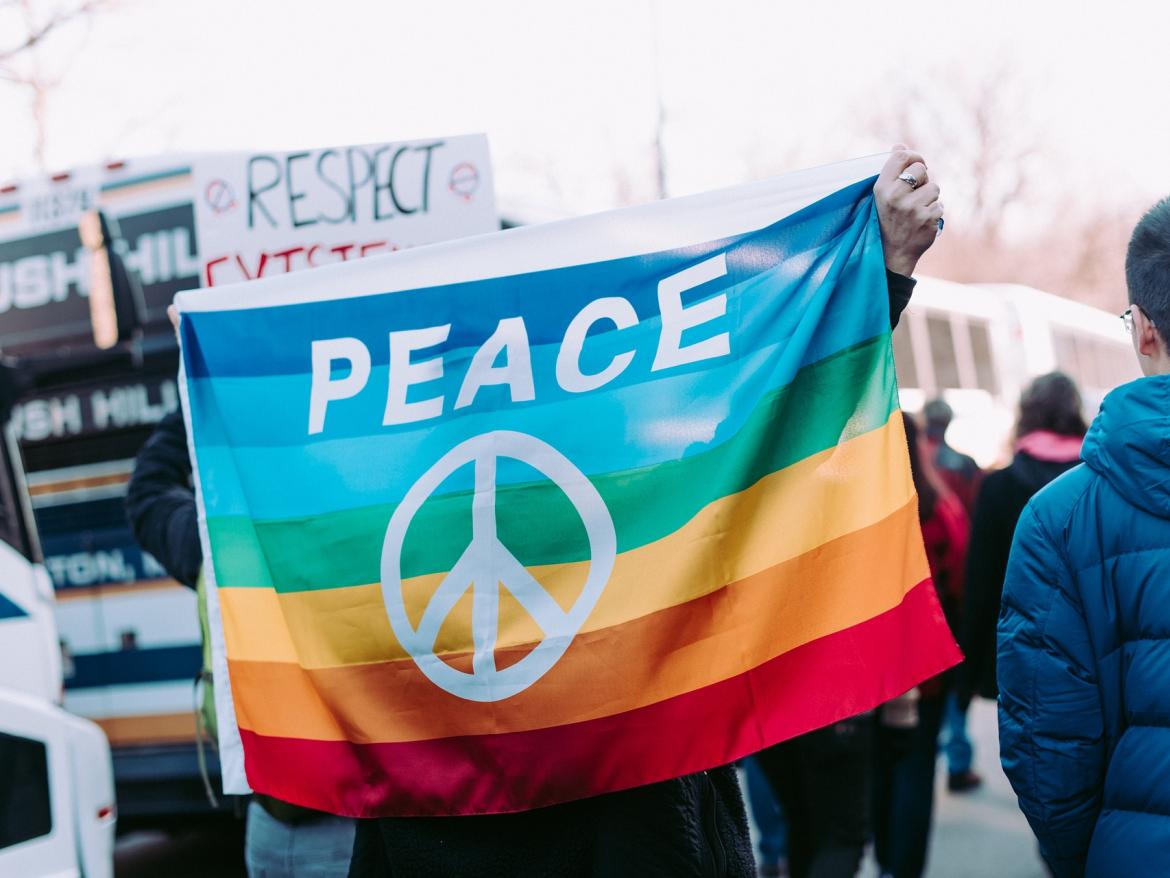President Biden has committed “to help lead the world toward a more peaceful, prosperous future for all people.” To fulfill this commitment, Congress must invest in conflict prevention and peacebuilding efforts.
On International Day of Peace 2021, before the United Nations General Assembly, President Biden announced his administration’s commitment “to help lead the world toward a more peaceful, prosperous future for all people.” To fulfill this commitment, Congress must invest in conflict prevention and peacebuilding efforts.
The need for peacebuilding remains as urgent as ever. Around the world, communities are facing ongoing violence and political instability intensified by the impacts of climate change, the COVID-19 pandemic and global food insecurity.
Ultimately, prioritizing peacebuilding not only prevents human suffering, but saves U.S. taxpayer dollars.
The Armed Conflict Location & Event Data Project (ACLED) found that there was a 13% rise in the number of riots and violent protests around the world between January 2020 and June 2022. The average level of global peacefulness has steadily deteriorated, year over year since 2014, with a significant erosion in 2020 according to the 2022 Global Peace Index, which tracks 23 comprehensive quantitative indicators of peace.
Peacebuilding provides a critical tool to meet today’s challenges and build toward sustainable peace. Peacebuilding supports the response to and recovery from these compounding crises, by helping prevent sudden outbreaks of violence and healing fractured societies over the long term.
Investing in Peace
As United Nations Secretary-General António Guterres succinctly stated, “Instead of responding to crises, we need to invest far more in prevention. Prevention works, saves lives and is cost-effective.”
In fact, the Institute for Economics and Peace found that every dollar invested in peacebuilding, “carries a potential $16 reduction in the cost of armed conflict.” Ultimately, prioritizing peacebuilding not only prevents human suffering, but saves U.S. taxpayer dollars.
This year, Congress can make a meaningful impact in sustainable peace around the world by investing in it!
For the 118th Congress’ first budget, FCNL is urging strong investments in three core accounts that fund prevention and peacebuilding: Atrocities Prevention, Complex Crises Fund, and Reconciliation Programs.
Atrocities Prevention
Atrocities Prevention is the State Department’s only funding dedicated solely to the prevention of mass atrocities and genocide. It supports programs that aim to prevent mass atrocities and genocide.
It can also provide critical support to the newly released 2022 U.S. Strategy to Anticipate, Prevent, and Respond to Atrocities which calls for the Atrocity Prevention Task Force to “identify up to the top 30 Task Force priority countries most at risk for atrocities, [and] develop targeted response plans for priority countries.”
However, from fiscal year 2018-2022, Atrocities Prevention only received $5 million annually, allowing it to support programming in just 3-5 countries.
In order to match the ambition of the Strategy and to meet the global need, we urge Congress to appropriate not less than $25 million for Atrocities Prevention in FY24.
Complex Crises Fund
The Complex Crises Fund (CCF) is the only account of its kind, filling immediate, short-term gaps during emergent crises. The CCF was authorized in the Global Fragility Act of 2019, (P.L. 116-94) and enables USAID to prevent and respond to early warning signs of mass atrocities and escalating conflicts. Its resources are consistently in high demand, having been used in over 30 countries over the last two decades.
In particular, it has allowed for critical peacebuilding programs in Burkina Faso, Bangladesh, Mali, Mozambique, and South Sudan to counter violent extremism, heal divided communities, and facilitate dialogue and conflict resolution.
While Congress made recent progress in increasing support to the CCF in its enacted FY 22 appropriations (P.L. 117-103), due to rising inflation and global need, we urge Congress to appropriate not less than $66 million for the CCF in FY24.
Reconciliation Programs
People-to-people reconciliation programs support the peaceful coexistence of different ethnic, religious, and political groups in conflict affected communities by addressing prejudices, promoting mutual trust and understanding, and facilitating non-violent conflict resolution.
While there is no singular approach, reconciliation programs aim to heal social divides over the long-term and promote cultures of peace by bringing together adversarial groups in safe spaces to address divisions and work toward common goals. In 2019, USAID’s Center for Conflict and Violence Prevention leveraged these funds to support 35 programs across 27 countries.
In its enacted FY 22 appropriations (P.L. 117-103), Congress provided just $25 million to this critical account. However, due to increased global need for peacebuilding and reconciliation efforts, we urge Congress to appropriate not less than $40 million for Reconciliation Programs in FY24.
Join our email list!
Stay informed and stay active
